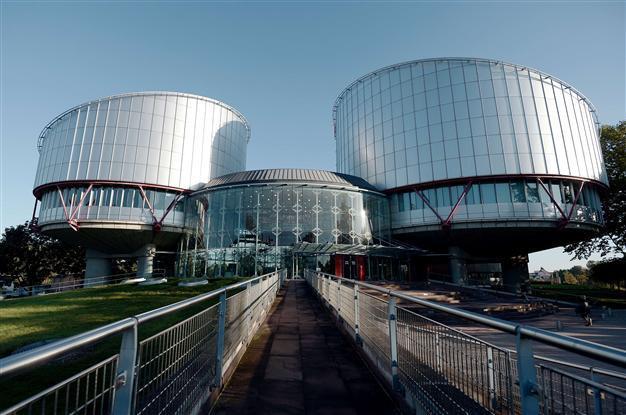Turkey fined for ill-treatment of suspect and lack of investigation into death
STRASBOURG

AFP Photo
The European Court of Human Rights (ECHR) has fined Turkey in two separate cases for lack of efficient investigation into a man’s death and ill-treatment of a man under police detention.
The court fined Turkey 6,500 euros for non-pecuniary damage and 2,250 euros for the ill-treatment and excessive detention of Galip Doğru by the police during his arrest. In 2003, Doğru was arrested by police officers after he threw a Molotov cocktail at a bank during demonstrations for the outlawed Kurdistan Workers’ Party (PKK).
He was charged with membership in an illegal organization and use of explosives. On May 26, 2006, Doğru was sentenced to 10 years and five months in prison.
Doğru lodged an appeal and the Supreme Court of Appeals quashed the first-instance judgment for a procedural defect. On Oct. 31, 2007, the court reiterated its first position on the original judgment and the Supreme Court of Appeals upheld the new judgment.
At the same time, in the days following Doğru’s arrest, the public prosecutor at the State Security Court opened an investigation following the applicant’s allegations of ill-treatment. On Dec. 18, 2003, the criminal court acquitted the police officers in question.
The ECHR found that the length of Doğru’s pre-trial detention was excessive. They also found lack of a fair trial for his complaint that his conviction had been based on statements made while in police custody, which, according to him, had been made following ill-treatment and in the absence of a lawyer.
Meanwhile, in a separate ruling, the court fined Turkey 20,000 euros in non-pecuniary damage and 1,260 euros for costs and expenses for several applicants because of the lack of investigation into the death of Mustafa Döleksoy.
Döleksoy was found dead in his summer house near Erdemli in the southern province of Mersin in August 2007. Döleksoy’s relatives complained very few steps had been taken by authorities to clarify the circumstances of his death and that the steps taken had not been adequate enough to establish whether he was killed intentionally or not. They challenged, in particular, the credibility of the forensic reports used to close the investigation with a decision of non-prosecution. The court found Turkey violated the right to life due to lack of effective investigation.
